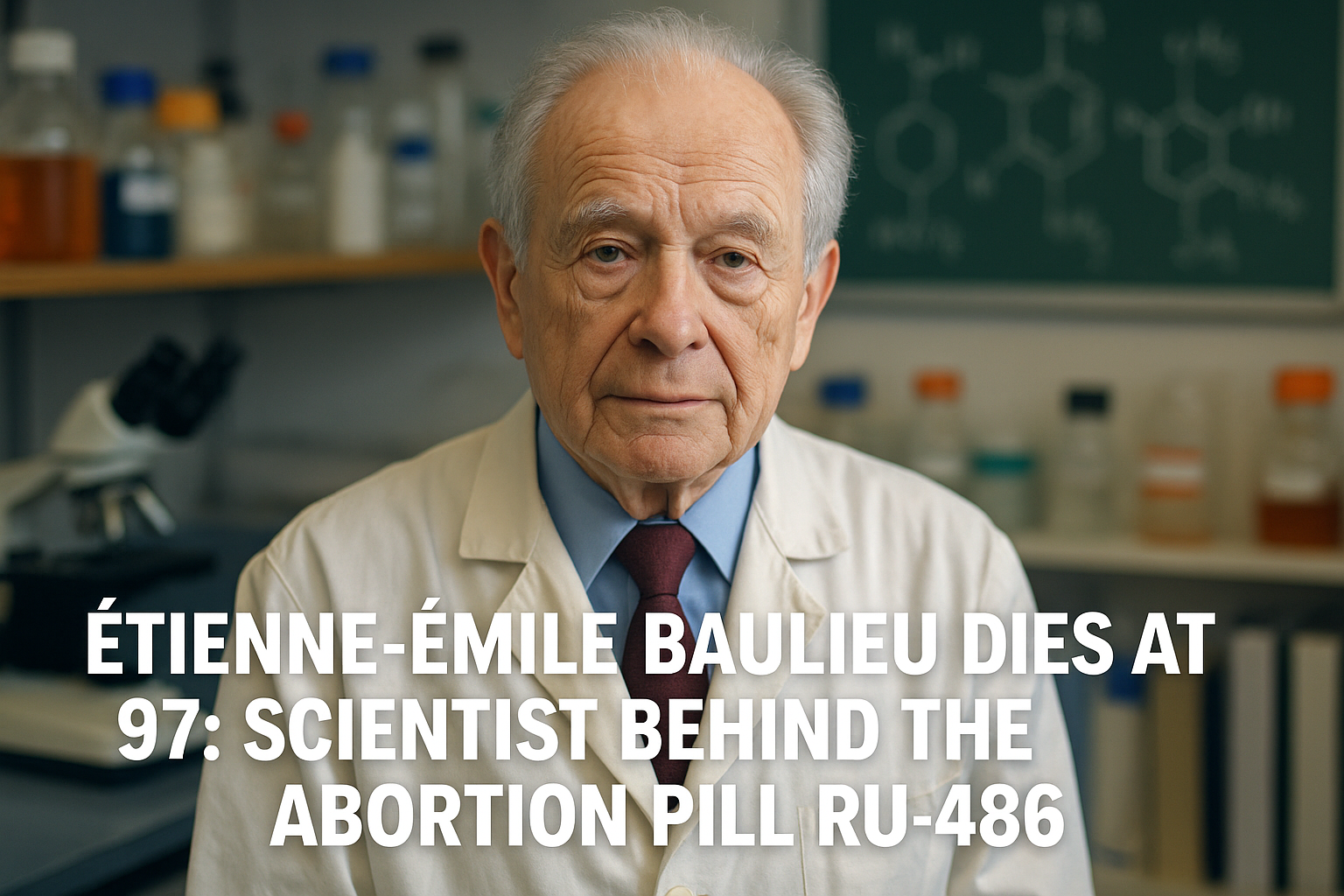Étienne-Émile Baulieu, French scientist and inventor of the abortion pill RU-486
Thank you for reading this post, don't forget to subscribe!The world of science and reproductive health is mourning the passing of Étienne-Émile Baulieu, the French biochemist who pioneered the abortion pill RU-486 (mifepristone). He died peacefully at the age of 97 on May 29, 2025, leaving behind a legacy marked by groundbreaking research, global controversy, and unwavering commitment to women’s reproductive rights.
Who Was Étienne-Émile Baulieu?
Born Etienne Blum on December 12, 1926, in Strasbourg, France, Baulieu later changed his name during World War II. He studied medicine and biochemistry, eventually becoming a professor at Bicêtre Hospital and a director at Inserm (France’s National Institute of Health and Medical Research).
He was best known for his research into hormones, aging, and reproductive health, but it was his work on RU-486 that would define his career—and make headlines around the world.
The Invention of RU-486 and the Global Impact
In the early 1980s, Baulieu helped develop mifepristone (RU-486)—a pill that induces abortion by blocking progesterone, the hormone necessary for pregnancy continuation. The pill was seen as a medical breakthrough, offering a non-invasive alternative to surgical abortion.
Despite intense backlash from pro-life groups, Baulieu stood firm, defending a woman’s right to choose and emphasizing the pill’s safety and effectiveness.
“A woman should be able to decide her own future. RU-486 gives her that power.” — Étienne-Émile Baulieu
The pill was first approved in France in 1988, and later in many countries around the world, including the United States in 2000. Today, it is used in more than 70 countries, and has become a cornerstone of reproductive healthcare.
Scientific Contributions Beyond Reproductive Health
Although RU-486 made him a household name, Baulieu’s research extended far beyond it. He made major contributions in:
- Hormonal regulation
- Menopause and contraception
- Neurosteroids and aging
- Hormonal cancers
He was a member of the French Academy of Sciences, received the Lasker Award in 1989, and was considered a visionary in endocrinology and biomedical ethics.
Controversy and Courage
Étienne-Émile Baulieu often found himself at the center of political and ethical storms. He was targeted by anti-abortion groups, received death threats, and faced institutional resistance.
Yet, he never backed down.
“Science must serve humanity, even when it is controversial,” he often said.
His resilience and eloquence turned him into both a scientific icon and a public intellectual, especially on issues involving bioethics, women’s rights, and medical autonomy.
Reactions to His Death
Tributes have poured in from around the world. French President Emmanuel Macron described him as a “pioneer of medical freedom.” Organizations like Planned Parenthood and Médecins Sans Frontières (MSF) praised his contribution to safe and accessible abortion care.
Social media platforms were flooded with hashtags like #ThankYouBaulieu and #RU486Legacy, celebrating a man whose work touched millions.
Legacy of Étienne-Émile Baulieu
Étienne-Émile Baulieu leaves behind:
- A legacy of scientific excellence
- A transformed global conversation on reproductive rights
- An indelible mark on medical ethics and social justice
His work continues to shape lives, policies, and debates across the globe.
“Progress is never easy. But it is always necessary.” — Baulieu
Conclusion: A Life of Purpose and Conviction
Étienne-Émile Baulieu was more than a scientist. He was a champion of human rights, a fighter for truth, and a symbol of courage in the face of adversity. His name will forever be linked to one of the most pivotal medical inventions in reproductive history.
As the world says goodbye to this towering figure, one thing remains clear: his legacy lives on in every woman who is able to choose, in every doctor who is able to offer an option, and in every patient who finds autonomy through science.
